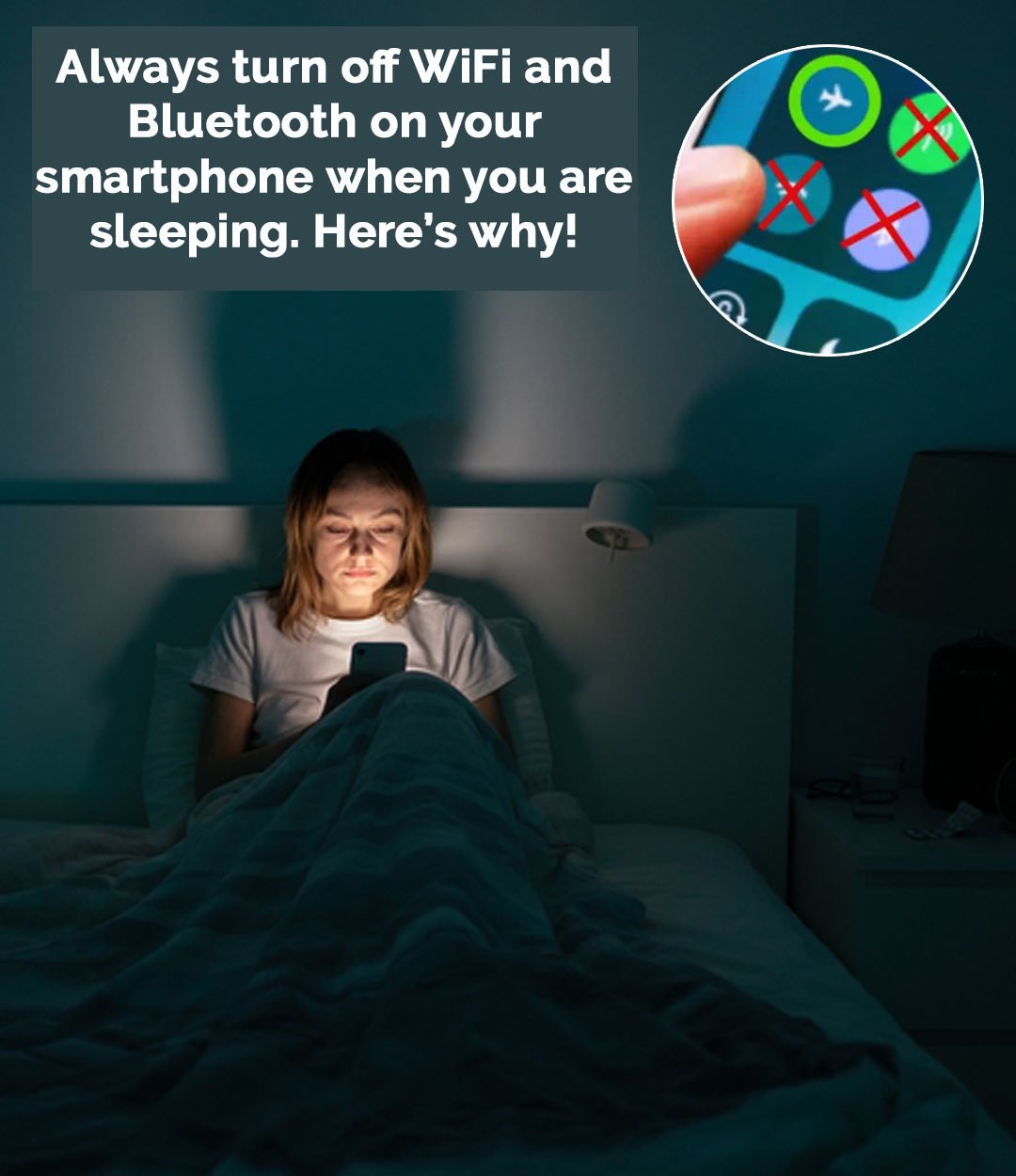In today’s tech-driven world, our smartphones have become indispensable. They wake us up in the morning, keep us connected with the world, and even double as our bedtime storybooks. But when it’s time to hit the hay, experts strongly recommend switching off WiFi and Bluetooth. While this might seem like a small, unnecessary step, it actually carries a range of benefits—from improving your sleep quality and conserving battery life to reducing potential health risks and boosting your device’s cybersecurity. Let’s dive into why this seemingly minor habit can have such a significant impact on your nightly routine and overall well-being.

Firstly, turning off WiFi and Bluetooth at night is a smart move for your phone’s battery life. Smartphones are sneaky energy drainers, even when they’re just lying idle on your nightstand. With WiFi and Bluetooth enabled, your phone continuously searches for connections—be it networks, wireless speakers, or smartwatches. This background activity happens silently but steadily, depleting your battery overnight. By switching off these features, your phone stops scanning and remains in a more energy-efficient idle state. The result? You’ll wake up to a phone with significantly more battery power, reducing the need for a morning recharge and ultimately prolonging your device’s overall battery lifespan.
Another compelling reason to disable WiFi and Bluetooth before bedtime is to improve your sleep quality. You might not realize it, but every notification ping, every buzz from background updates, and every minor connectivity check can subtly disrupt your sleep. Even if you’re not fully conscious of these interruptions, your brain registers them, preventing you from achieving deep, restorative sleep. By shutting off these wireless connections, you eliminate one more source of unnecessary disturbance, allowing your brain to fully relax. Pairing this habit with your phone’s “Do Not Disturb” mode takes your nighttime routine to the next level, ensuring a serene, undisturbed sleep cycle.
Beyond battery life and sleep, there’s also the issue of electromagnetic fields (EMFs). While scientific studies remain inconclusive about the exact health risks associated with long-term EMF exposure, some researchers suggest that these fields can interfere with the body’s natural electrical communication. Organizations like Tech Wellness point out that EMFs may disrupt brainwave activity and intercellular communication, potentially affecting your overall health and sleep quality. Meanwhile, the FDA maintains that there’s no definitive evidence linking cell phone EMF exposure to adverse health effects when levels remain within regulatory limits. Still, it’s better to err on the side of caution. Turning off WiFi and Bluetooth at night is an easy and practical way to minimize your EMF exposure while sleeping, contributing to a healthier sleeping environment.
Cybersecurity is another key reason to adopt this nightly habit. When WiFi and Bluetooth are left on, your phone becomes more susceptible to unauthorized connections. Hackers and malicious software can exploit these open channels, potentially accessing your personal data while your phone quietly scans for connections. Think of leaving your WiFi and Bluetooth on as leaving your front door unlocked while you’re asleep. By disabling these features, you’re essentially locking that digital door, adding an extra layer of protection for your sensitive information. In a world where data breaches and cybercrime are increasingly common, every small security measure counts.
In addition to all these practical benefits, there’s also the mental health angle. We’ve all become a little too attached to our devices, and this constant connectivity can feel overwhelming. Turning off WiFi and Bluetooth at night serves as a psychological signal to disconnect. It’s like telling your brain, “Okay, it’s time to rest now.” This small act can encourage healthier bedtime habits, such as putting your phone down earlier, avoiding endless scrolling, and allowing your mind to wind down naturally. Over time, these habits can significantly improve not only your sleep quality but also your overall relationship with technology.
For an even more effective nighttime routine, pair this habit with your phone’s “Do Not Disturb” mode. This ensures that even if you forget to silence certain apps or notifications, your phone won’t disrupt your sleep with unnecessary sounds or vibrations. Together, these steps create the ultimate nighttime digital detox.
At first glance, turning off WiFi and Bluetooth at bedtime might seem like an insignificant change. But as we’ve seen, its benefits are far-reaching. You’ll conserve battery life, improve your sleep, reduce EMF exposure, enhance your cybersecurity, and develop healthier tech habits. It’s a small action with enormous rewards, both for your physical health and your mental peace.
So, the next time you’re about to call it a night, take a few seconds to switch off your WiFi and Bluetooth. It’s an effortless step, but one that can positively impact your health, your device, and your overall quality of life. Give it a try tonight, and you might just wake up feeling more refreshed, more secure, and better prepared to face the day. Sometimes, the simplest habits can create the biggest changes. Your phone, your body, and your mind will thank you.





